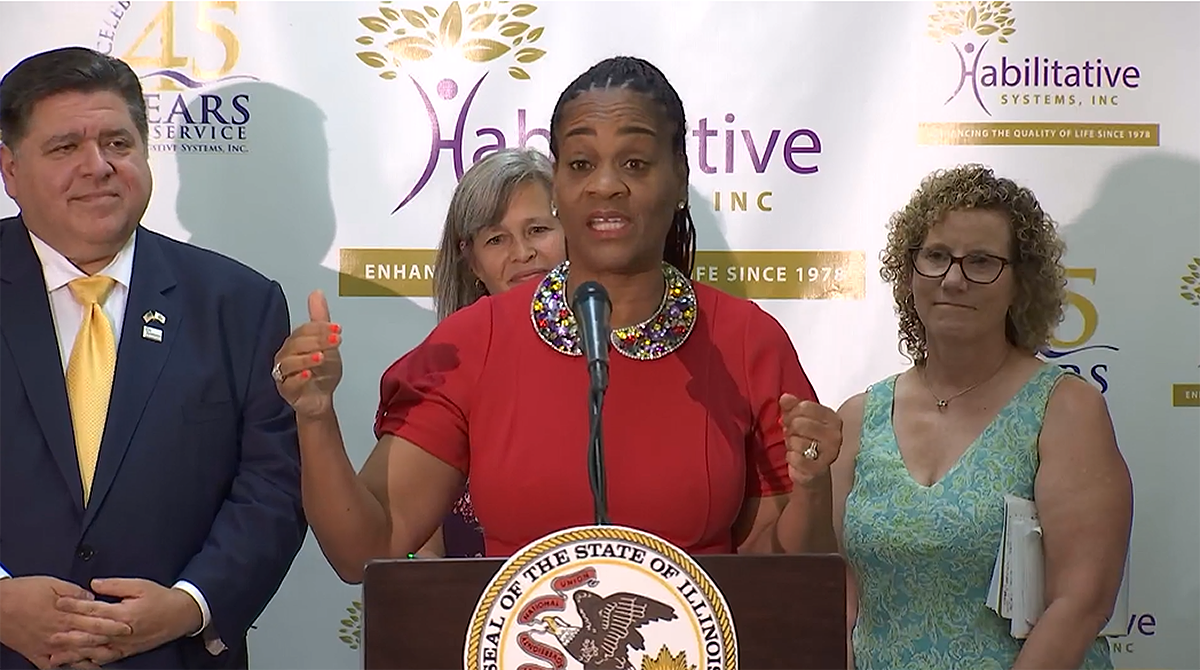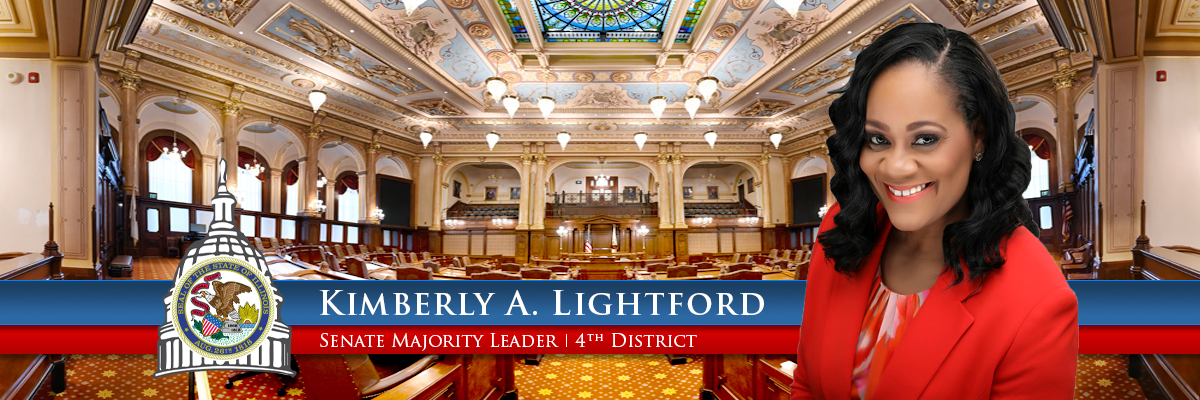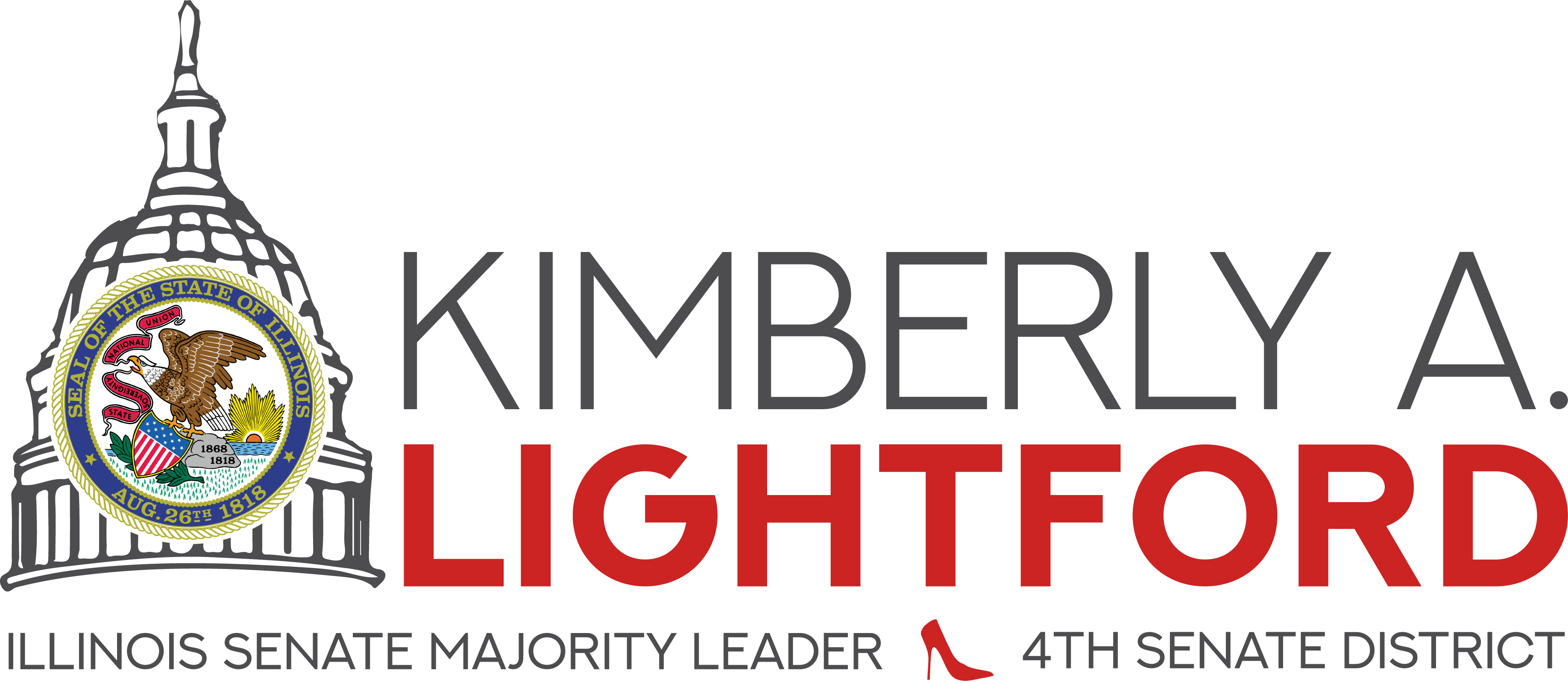- Details
- Category: News
- Details
- Category: News
 SPRINGFIELD – Recognizing staff shortages in the EMS workforce, Senate Majority Leader Kimberly A. Lightford led a new law to attract and retain EMS workers.
SPRINGFIELD – Recognizing staff shortages in the EMS workforce, Senate Majority Leader Kimberly A. Lightford led a new law to attract and retain EMS workers.
“The pandemic further exacerbated how vital the EMS professionals are,” said Lightford (D-Maywood). “We need to expand the workforce by prioritizing recruitment and retention of highly-skilled workers.”
Senate Bill 761 works to tackle the emergency medical field workforce shortage head on by allowing more flexibility for EMS directors to use alternative staffing models and creating a task force to bring greater training, recruitment and retention to the field.
Currently, there is a shortage of EMS instructors in particular. Lightford’s law will allow people interested in becoming an instructor to bypass taking an IDPH-approved course if they have sufficient experience to become a director. This will help recruit individuals from other states by eliminating unnecessary hoops when moving to Illinois.
“There are plenty of well-trained people who are ready and willing to step up to lead,” said Lightford. “Let’s put that opportunity in reach. Helping EMS workers helps our community.”
Senate Bill 761 was signed into law Friday.
- Details
- Category: News

SPRINGFIELD – Building upon her steadfast commitment to ensure Illinois schools are taking a trauma-responsive approach, Senator Majority Leader Kimberly A. Lightford championed a new law to bring more training and resources to the education system.
“School officials should be equipped to identify the warning signs of mental illness, trauma and suicidal behavior in youth,” said Lightford (D-Maywood). “Training is crucial to encouraging appropriate trauma-responsive intervention and techniques in schools.”
The Whole Child Task Force establishes an equitable, safe, inclusive and supportive environment in all schools for students dealing with trauma and mental health issues. The task force collects data on adverse childhood experiences and trauma, as well as the total number of school counselors, social workers, nurses and psychologists in Illinois schools.
As a part of the Black Caucus’ Four Pillar Agenda that Lightford spearheaded, House Bill 342 implements recommendations to the Whole Child Task Force Report to improve schools in Illinois by ensuring that all schools are equipped with training and resources to meet the diverse trauma and mental health needs of their students.
- Details
- Category: News

SPRINGFIELD – All Illinois children will now have equal access to full-day kindergarten thanks to a new law championed by Senate Majority Leader Kimberly A. Lightford.
“Kindergarten is pivotal for children’s learning journey,” said Lightford (D-Maywood). “Full-day kindergarten classes across the state will ensure equal access to early learning opportunities for all our families.”
Parents who live in districts without the option of full-day kindergarten are often faced with additional barriers to preparing their children for early elementary school. These barriers include, but are not limited to, mid-day transportation, loss of income due to being home with the child or finding additional childcare, and ensuring developmentally appropriate activities are being provided throughout the day.
Currently, it is optional for school districts to offer full-day kindergarten. Lightford’s law provides full-day kindergarten options with developmentally appropriate play-based learning opportunities for families throughout the state.
More Articles …
Page 14 of 131









